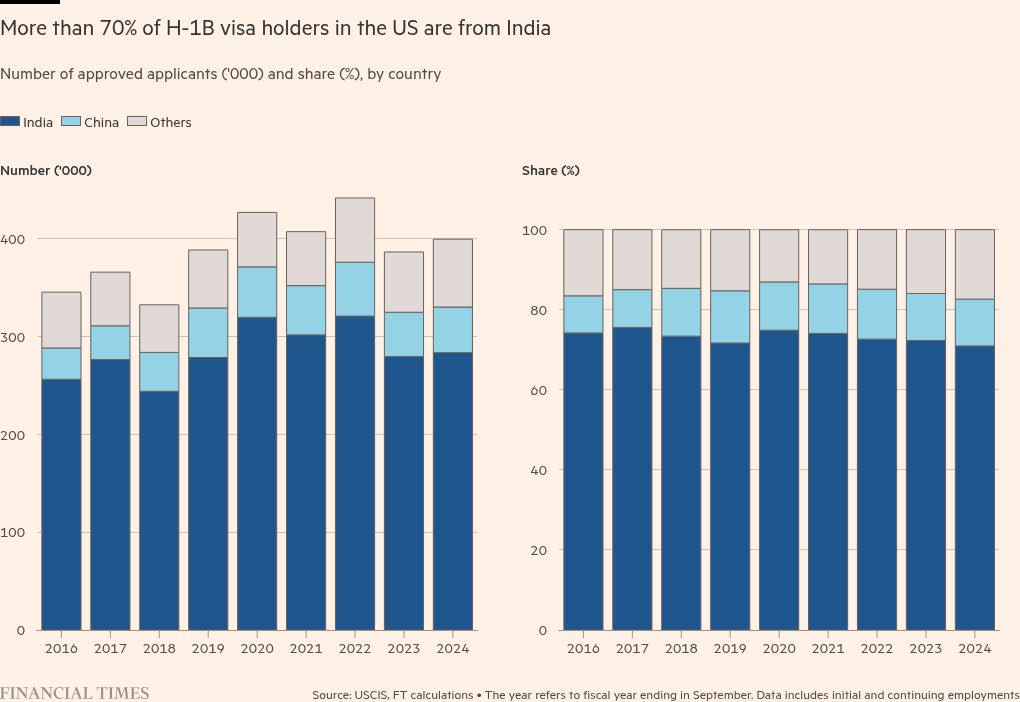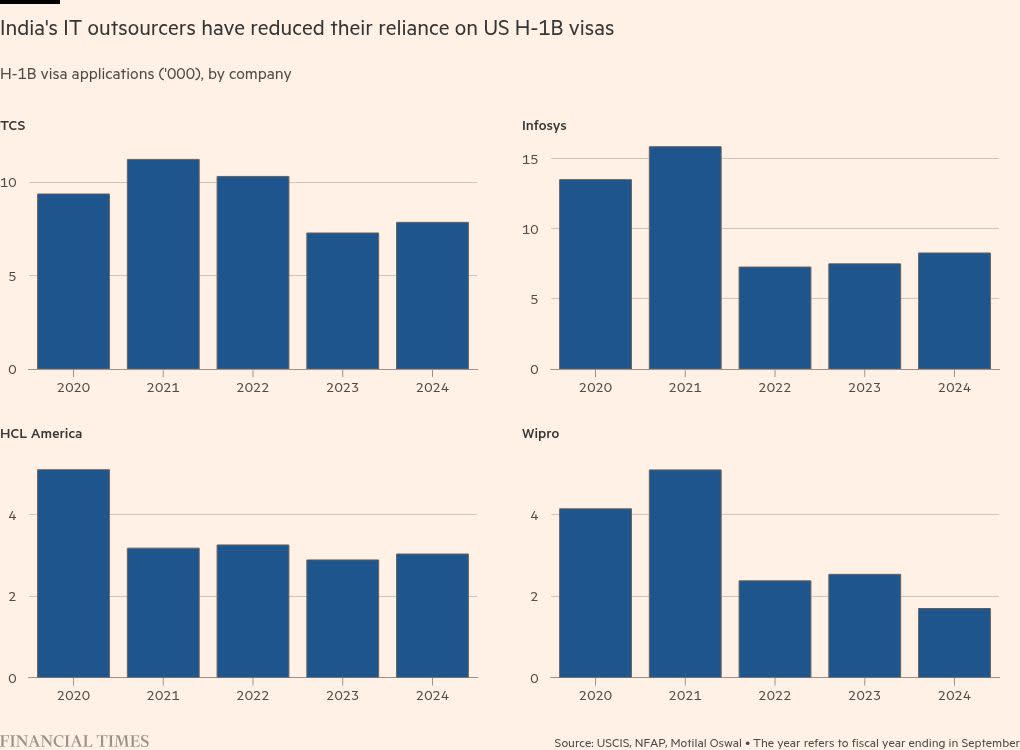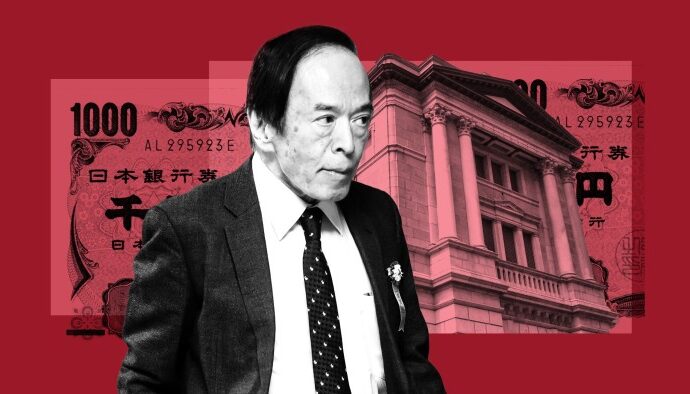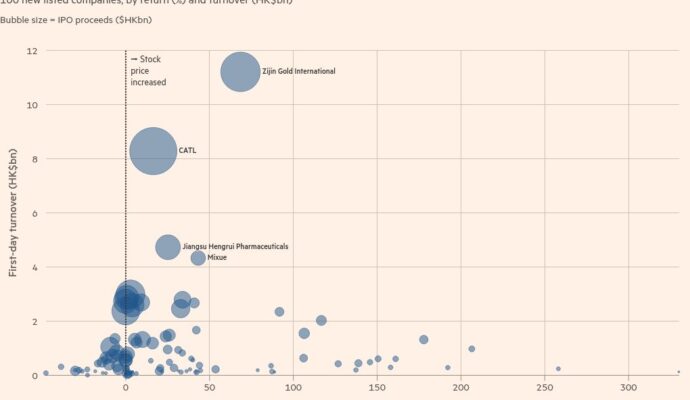Unlock the White House Watch newsletter for free
Your guide to what Trump’s second term means for Washington, business and the world
Shares in Indian IT services companies fell on Monday after US President Donald Trump sharply raised the application fee for workers seeking H-1B visas, a programme heavily used by the industry.
The Nifty IT index dropped 2.7 per cent in Mumbai as Tata Consultancy Services, Infosys, HCLTech and Wipro — the country’s largest outsourcing companies — all declined by a similar amount.
Trump on Friday ordered the imposition of a $100,000 fee on skilled foreign worker visas. The move threatens disruption to India’s technology services industry, with its $283bn in annual revenues.
Indian citizens account for more than 70 per cent of H-1B visa holders in the US.
“This sudden fee hike has sparked confusion and panic among tech companies and international workers,” said Devarsh Vakil, head of prime research at HDFC Securities in Mumbai. “Costs of deploying Indian professionals to US client sites for new projects will surge, making on-site assignments less financially viable for many companies.”
Critics of the programme, including Trump, argue that H-1B visas allow tech groups to undercut American workers by hiring cheaper Indian staff. Others supporting the visas, such as Tesla chief and Trump donor Elon Musk, credit them with supporting US technology dominance.
The president’s announcement prompted travel disruption over the weekend as many Indian professionals rushed to return to the US or cancel holidays. The White House later clarified that the new rules would apply only to fresh applications from the next visa lottery in February, not to existing H-1B holders.
Both Indian and US companies are among the largest users of the visa. TCS is the second-biggest corporate sponsor of H-1B petitions, while thousands of employees at Amazon, Microsoft and Apple also use the programme.
The measure is likely to deepen tensions between Washington and New Delhi. Trump has already imposed a 50 per cent tariff on Indian goods, citing the country’s trade in Russian oil.
India’s external affairs ministry warned the visa change was “likely to have humanitarian consequences by way of the disruption caused for families”.
TCS, Infosys, HCLTech and Wipro did not respond to requests for comment. Nasscom, the Indian IT and tech industry trade body, said the decision would disrupt “business continuity for onshore projects which may require adjustments”.
Nasscom noted that Indian groups had been reducing their reliance on visas by increasing local hiring in recent years, adding that “high-skill talent is vital to driving innovation, competitiveness and growth for America’s economy”.
Analysts at Mumbai-based financial services group Motilal Oswal said Indian outsourcers had steadily expanded US recruiting after Trump’s previous term, where he had cracked down on foreign workers.
About one-fifth of the industry’s staff is based in the US, its largest market. Between 20 and 30 per cent of these are on H-1B visas, representing about 3 to 5 per cent of a typical company’s workforce, according to their estimates.
The analysts added that current visa applications appear to be secure, adding that Trump’s directive was “likely to be challenged in US courts and may not survive in its current form”.



